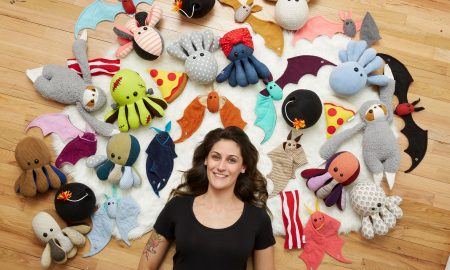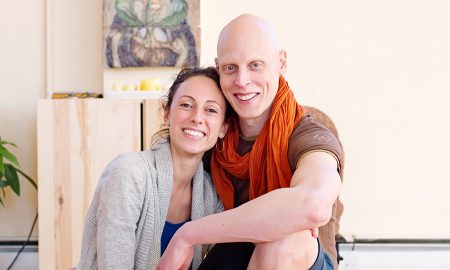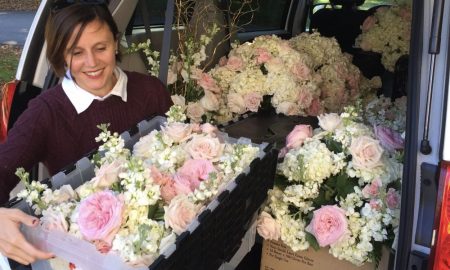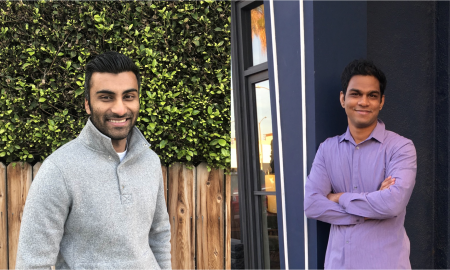

Today we’d like to introduce you to Roxanna Myhrum.
Thanks for sharing your story with us Roxanna. So, let’s start at the beginning and we can move on from there.
I grew up in Springfield, MA where I took acting lessons at a fantastic theater school called The Drama Studio. One of my teachers commuted in from Connecticut, where he also worked with the Eugene O’Neill Theater Center, one of the nation’s hubs for developing new works. When I took a shine to mask work, puppetry, and other “non-realistic” theater, he invited me to be part of the National Puppetry Conference, a week-long intensive there devoted to advancing shows-in-development.
That’s how I found myself working with Heather Henson, daughter of Muppets creators Jim and Jane Henson, on an innovative outdoor spectacle called “Petals in the Wind” and with Hua Hua Zhang, a Chinese-American puppet master, on an abstract ensemble piece about the origins of the world and the rise of fascism. I was 15. I worked at the O’Neill for many summers over the next decade, experiencing puppetry as a world of creative collaboration and infinite possibility.
I explored a lot of other paths through my 20s, completing a Social Studies degree at Harvard, working in research and documentary production, doing some stints in advertising and communications. But I missed the lure of live performance and started to look for other options.
My professional path back to theater actually started in opera, as I joined with several of Boston’s entrepreneurial fringe opera companies to produce impactful, accessible, highly theatrical events. While I didn’t use puppetry per se, I was developing my own visual language and stylized performance aesthetic. I was also learning how to work with big creative teams, and how to produce work in Boston’s resource and space-constrained landscape.
In 2009, the Artistic Director position at Puppet Showplace Theater opened up. Once puppetry is on your resume, it stays there, and it sticks in people’s minds. I had at least 3 people forward me the job description. At the time, it was only for two days a week, but I pitched myself with all the passion I could muster. I started the job in January 2010 at age 26.
Since then, I’ve initiated a new works development program, grown our programming for all ages, puppet coached award-winning productions at most of Boston’s regional theaters and instigated some wild site-specific puppetry projects. Now in our 45th season, we are still going strong!
Great, so let’s dig a little deeper into the story – has it been an easy path overall and if not, what were the challenges you’ve had to overcome?
I took over at Puppet Showplace right after the recession. Cash was tight, and anything I did had to be revenue-generating while still mission-driven. My colleagues and I embraced the challenge. We drew on the strength and creativity of the artists and audience members who cared deeply about the theater and listened to what they wanted.
This informed our launch of adult classes, our introduction of a toddler series, etc. We also formed some solid partnerships with schools and local agencies that have lasted for years. We also created an organizational culture that was tenaciously in support of the professional puppeteers we present. Their wellbeing and continued support is at the forefront of all of our decisions.
From a curatorial standpoint, one of my biggest challenges has been how to balance audience expectations with artistic innovation. The public is generally not very literate about puppetry, and there are a lot of really frustrating stereotypes out there about what we do and why. Professional puppeteers tend to be versatile, interdisciplinary artists and entrepreneurs. We’re not weirdos, we’re savvy creatives.
Especially in children’s entertainment, there can be a lot of pressure to stick with the fairy tale canon, creating and touring shows with predictable titles (hence our saying: you can do whatever you want as long as you call it “Cinderella”). But we also serve a really diverse audience, and we believe in puppetry’s power to go beyond these expectations, to foster dialogue and to build people’s capacity for empathy. We also love when puppeteers lead us to visual worlds that defy our expectations.
Through our incubator program, we try to nurture and cultivate works in this vein. And when we get calls from clients asking if a certain show is a “boy show or a girl show” or asking if we can just do a puppet show about the most recent Pixar film, we try to educate them and guide their expectations to be open to something new.
Puppet Showplace Theater – what should we know? What do you guys do best? What sets you apart from the competition?
Puppet Showplace is New England’s home for Puppetry Arts. We have a busy year-round season, with different shows every week for youth and family audiences at our storefront venue in Brookline Village. Once a month, we stay open late and our “Puppets at Night” series presents a show for adults. We also offer classes, camps, and workshops for all ages, Pre-K to adult, and our resident artists tour shows throughout New England and beyond. We collaborate on creative projects of all kinds, from full-scale productions to festivals and family events.
Visiting Puppet Showplace is like walking into a joy factory. A giant smiling goldfish swims over our door. Our workspace is a slightly chaotic, colorful delight. When shows are going on, we get our energy from the contagious laughter of children, who respond with profound honesty and integrity to what’s happening on stage.
We see ourselves as a hub for puppetry arts, sharing knowledge and instigating interest. We want “puppet curious” artists and students to enroll in classes, or drop into our free “Hatchery” project nights. We are a welcoming and accessible group of professionals, without a lot of red tape or hierarchy blocking our doors.
Puppet Showplace sits at the intersection of Boston’s urban and suburban communities. Our audiences come from across the city and around the world. We work really hard to make sure that we are accessible to everyone who wants to play with us.
What moment in your career do you look back most fondly on?
The Incubator New Works Development Program is my baby. It’s now 6 years old, and the 12+ shows that have come through this program have won major awards, toured internationally, and made a big impact on Boston’s cultural scene.
There is also a passionate and supportive community of artists, funders, and audiences who gather and rally behind incubator shows every year. It is so much work to make a production, and the artists who undertake this quest are my heroes. Sometimes they call me the “puppet whisperer,” for my role in helping to get through the dark and difficult times when it seems like the work isn’t fun anymore.
It’s a funny skill set, but supporting new works is something I’ve been doing since I was 15, and I’m honored to be able to do this today as part of my job at Puppet Showplace, and in my role on the Board of the Jim Henson Foundation.
Pricing:
- Tickets for weekly mainstage shows: $8-$15
- Tickets for adult Puppets at Night shows: $10 – $25
Contact Info:
- Address: 32 Station Street Brookline, MA 02445
- Website: www.puppetshowplace.org
- Phone: 617-731-6400
- Email: artistic@puppetshowplace.org
- Instagram: @puppetshowplace
- Facebook: @puppetshowplace
- Twitter: @puppetshowplace
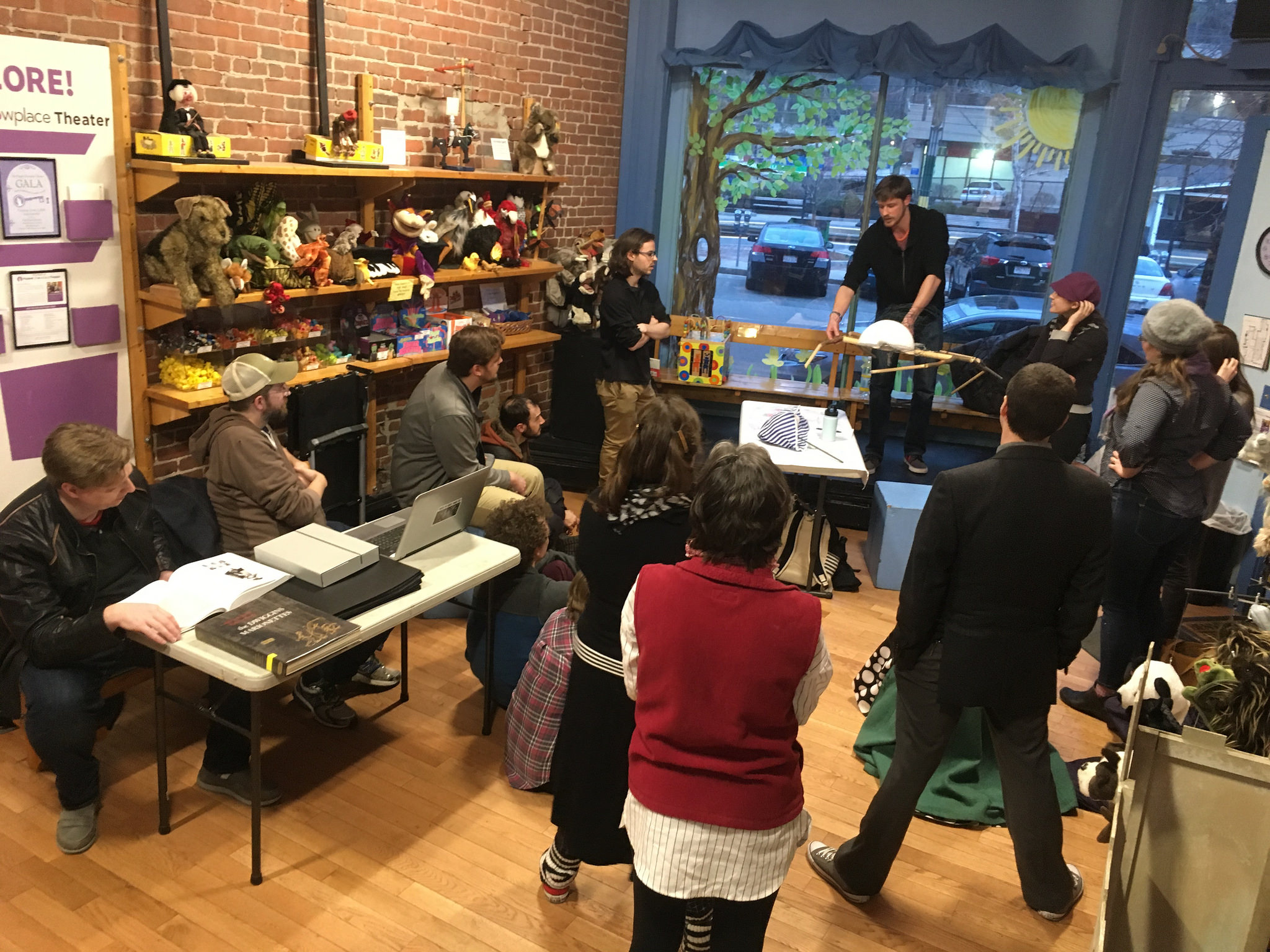
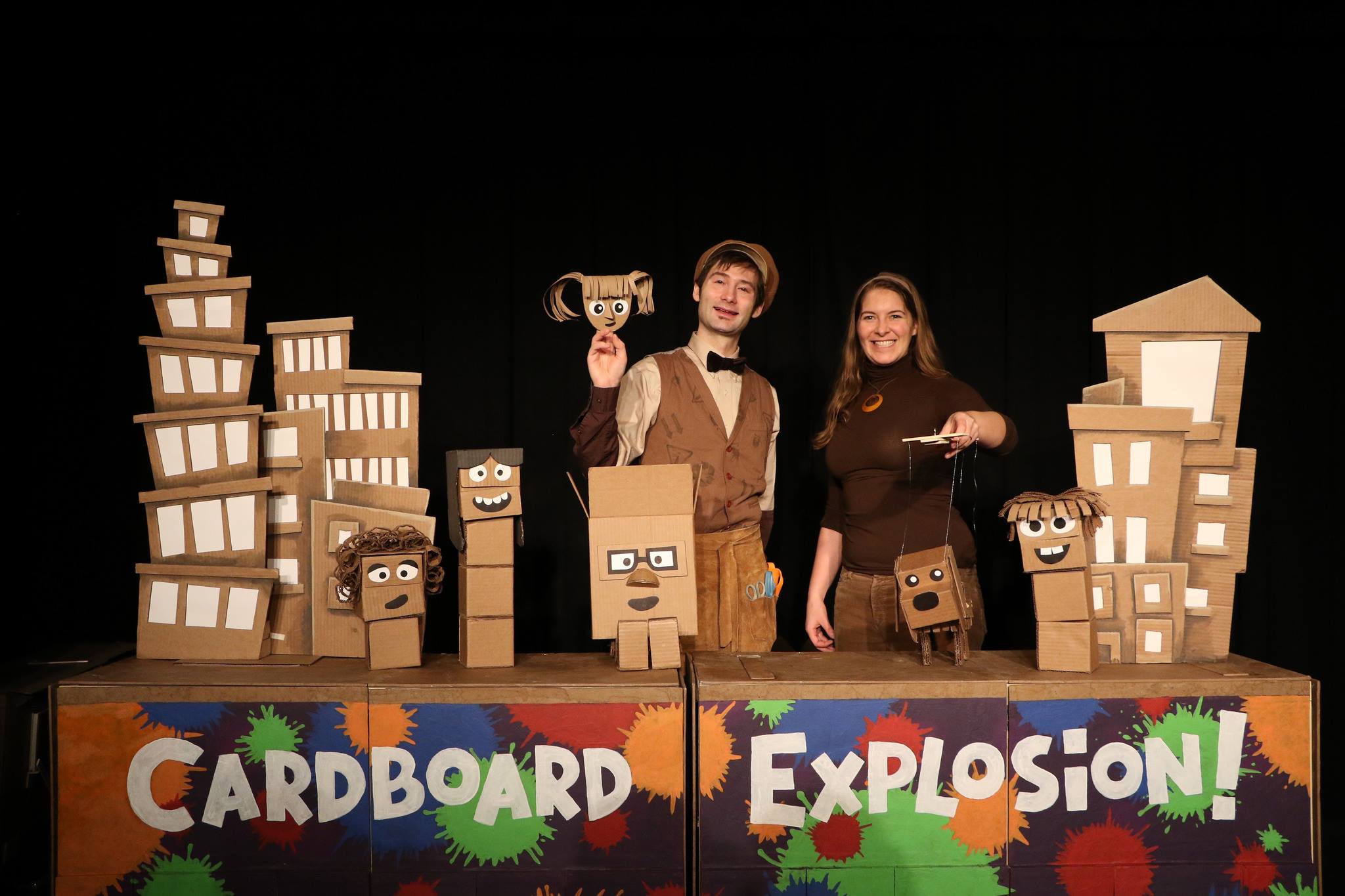
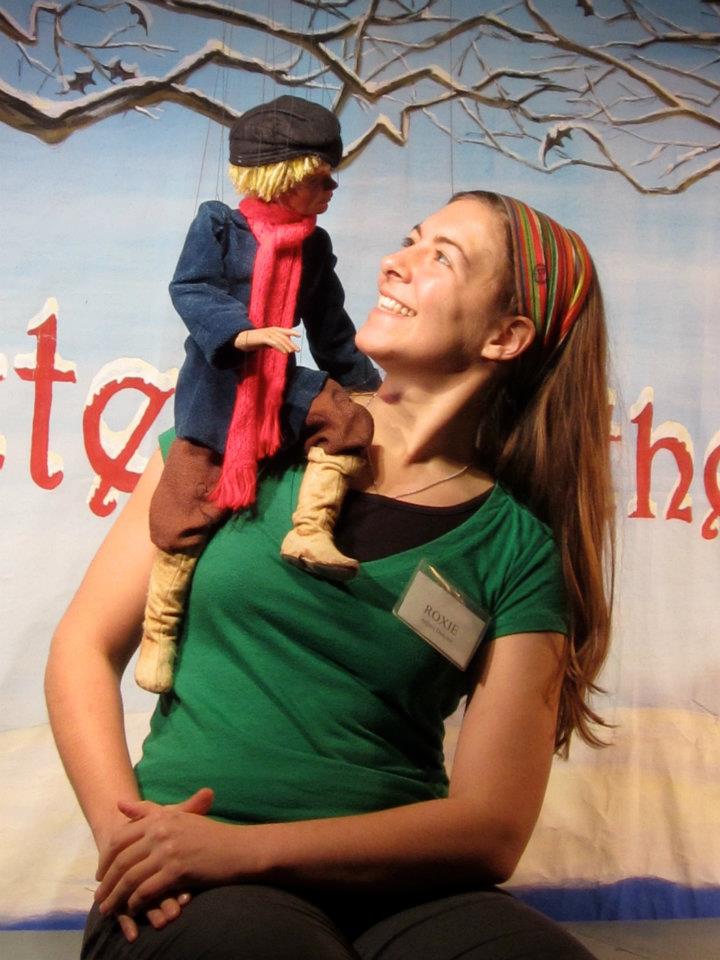
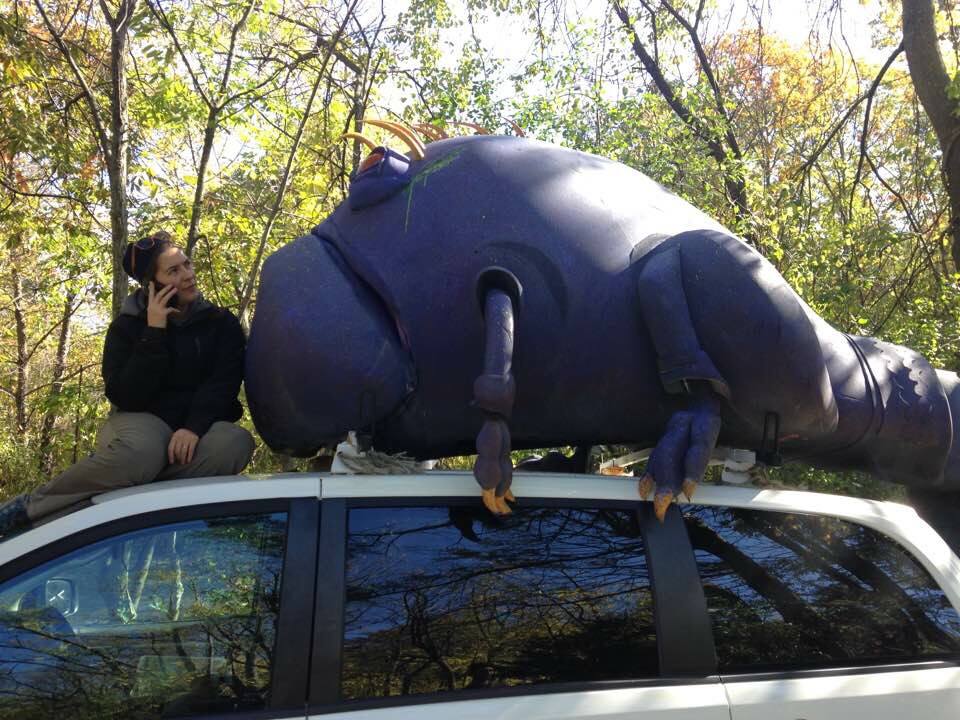
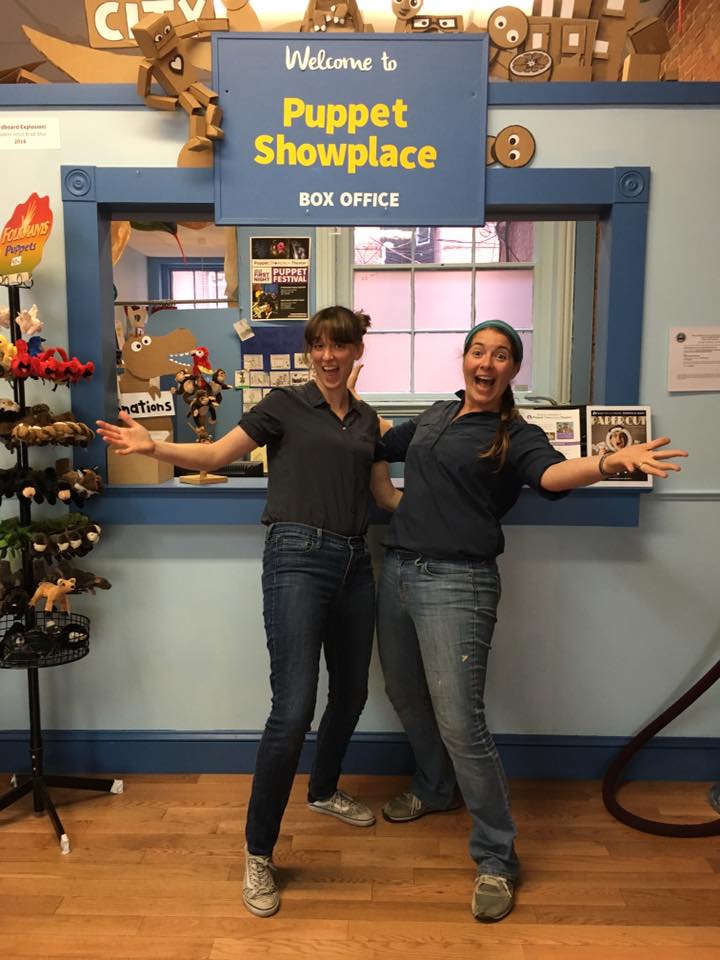
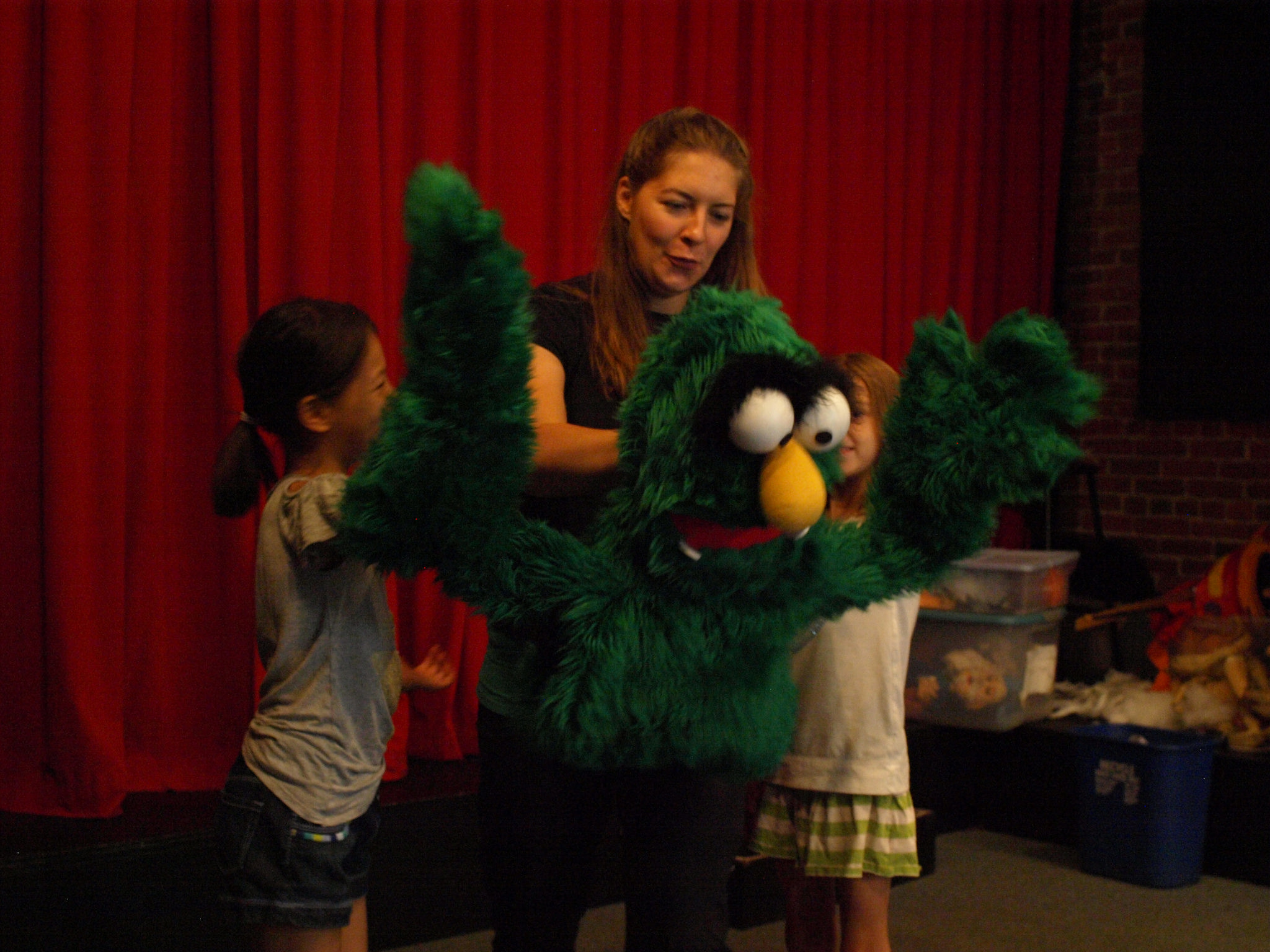
Getting in touch: BostonVoyager is built on recommendations from the community; it’s how we uncover hidden gems, so if you know someone who deserves recognition please let us know here.












